Profile
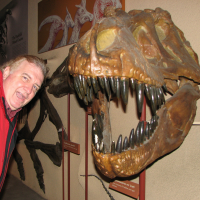
Robert Paul Blumenstein
Supernatural Suspense, Science Fiction
- Profile View
13422
- Books
4
- Member Since
May 2017
- Country
United States
About
ON SOUTHERN FICTION-- HOW I GOT HERE
I've visited many places on this earth. I've been to Europe several times, to Central America, and Canada. I've toured the entire continent of Africa. And I've dipped my toes in the great Pacific pond many times on several different shores. Yet, I was always merely a visitor to those places. Even when I traveled extensively around the entire country of Germany (when it was divided into two parts) searching for familial ties did I realize that I've actually only lived in one place: the South. Is there really a place called the "South" or is it merely a geographic area?
I remember while growing up in Georgia and South Carolina my cousins from points north of the Mason-Dixon Line would visit us from time to time. When I listened to my cousins talk about their sojourns to the South, they made it sound as though they had entered a foreign country. So, at an early age, I realized that my southern associations, my environment, and most importantly, my culture was unique. I knew that I could only express the world as viewed through the eyes of a southerner.
I started writing at a very early age, I mean, writing "stories." In the third grade, Mrs. Burnette assigned us homework that entailed finishing a story in which we had been supplied only the beginning. The storyline was about the Great Pumpkin, something about going to the pumpkin patch and finding it missing. Our task was then to complete the story in one paragraph, two paragraphs for extra credit. Most students came up with anecdotes like "a bear or cow or goat ate it" (kind of like their homework that never made it to school.) Not me. No, I concocted an elaborate story about how the Great Pumpkin grew legs and ran away because it feared being made into a jack-o-lantern, or a pie, and its great adventure that ensued thereafter.
My teacher was astounded when she held my thirteen page opus in her hand and wondered, "Where did this kid come up with all this stuff?" She immediately called my mother in for a conference to discuss Bobby's unrefined talent. You know, I really envy the kids of today. If little four-year-old Suzie bangs out a half-decent rendition of chopsticks on the piano, mom and dad frantically seek out the best-of-the-best music teacher to help this child prodigy find her place in the hall of fame for concert pianists. Well, anyone with grown children knows how that turns out. No, I'm from a different time period. My mother simply let out a sigh of relief and exclaimed, "Oh, thank God, he's not in any trouble!"
Not to say that my mother wasn't a nurturing soul, or my father, for that matter. My dad was a research chemist and he imparted to me the very valuable skill of examining a problem from every angle before drawing conclusions. My mother was an avid reader, and taught me how to read critically, yet her greatest gift to me was to teach me how to "enjoy" reading. My dad always had his nose in his scientific journals, which I came to appreciate in later years, and my mom had shelf upon shelf filled with fiction. So, they didn't pay for any writing lessons (until I got to college), but those other gifts they gave me sure have made all the difference to me as a writer.
Of course, I didn't go to an Ivy League school, or out west, or points in between. That was out of the question. My older brother and sister were both dogs; Bulldogs is what I mean by that. I considered laying tracks to Athens, but decided against it. My brother had died while a student at UGA and it engendered too much pain to head there as a student. So, I went up north, yep, all the way up to North Carolina, that is. That's where I embraced my dream of becoming a writer and enjoyed many opportunities to learn the craft. It was a very small college situated just below the Sandhills of North Carolina, on what is referred to as the coastal plain. Laurinburg was in the middle of nowhere, yet having grown up on a hobby farm in the Georgia countryside, that suited me just fine. You can find the loneliest person in the world right in the middle of a crowd of thousands; so I learned that loneliness is no less acute within a small population. And that's how I found many of my days at St. Andrews Presbyterian College.
But, things turned out for the best. I had plenty of time to pour that angst out on blank pages, and the rural countryside gave me ample room to pour my thoughts out into the vast expanse of cotton and melon fields. Yet the best part of all, I learned to draw real characters from a real southern environment, one that had remained unchanged for years on end. That experience helped me understand a few things about southerners and why we were viewed differently than the rest of the country.
I understood what the term "Reconstruction" really meant. I learned that poverty isn't something that you ride by on the A train and look the other way when you do. People are in poverty, not neighborhoods. And poverty makes people who they are; people don't make poverty, they're born into it. I learned that even though someone might be uneducated and use poor grammar, it makes them no less human than anyone else on the globe, and in fact, many of those folks are endowed with a special wisdom the rest of the world will never possess. I embraced the southern drawl spoken from the mouths of my fellow citizens not with ridicule, but with admiration. Southerners speak differently than anyone else in America and at times it is pure music. I examined various stereotypes that we as southerners have been assigned and discovered one of the most unfair, inaccurate assessments that we've been given is that we are all a bunch of racists. I once talked to an African-American who had moved from Queens, New York to Virginia and he said he liked living in the South far better than in the north because a man knew where he stood. He told me, "I've not met many people who hate blacks, but when I have, I know who they are. Where I came from, you just never knew who hated you for the color of skin and who didn't. Yet, I've found here in the South that most people are very accepting of me." His statement helped me realize that southerners had nothing to be ashamed of concerning the civil rights demonstrations held here in the 1960's-- freedom for men and women of all races was actually won in the South, not lost.
And so, somewhere amongst the rows of cotton on the coastal plain of North Carolina, a writer of Southern fiction was born. My wanderings through those fields brought many adventures to me: filling notepads with ideas for stories, hunting for rabbit and dove, and even making love to a beautiful co-ed tussling on the damp, sandy soil, drunk, in the middle of the night, possessed of passion. From there grew my own quest to write about the only place I've ever lived-- the South.
© Robert Paul Blumenstein, 2012
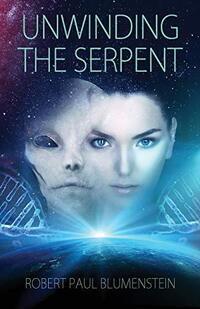
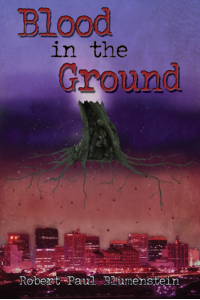
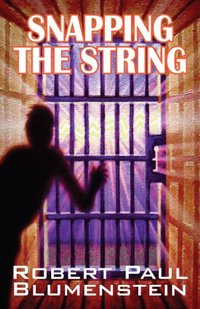
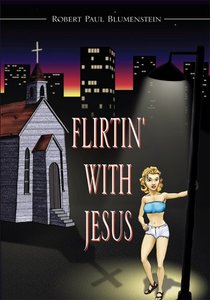
 Goodreads
Goodreads